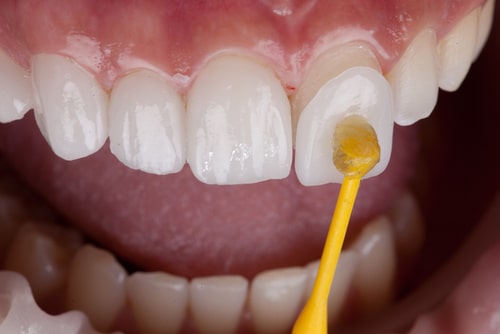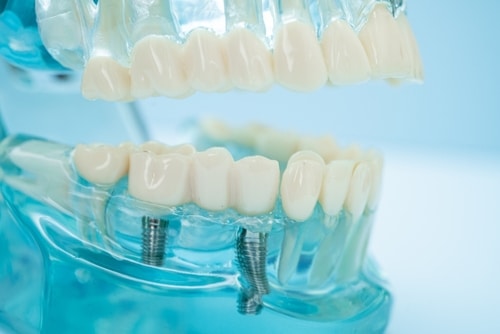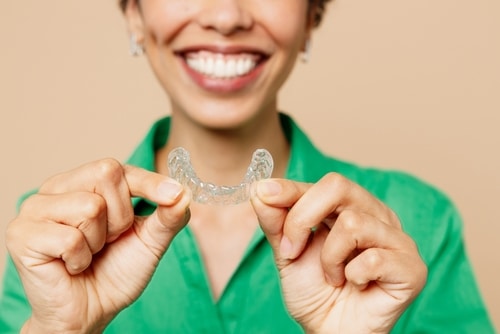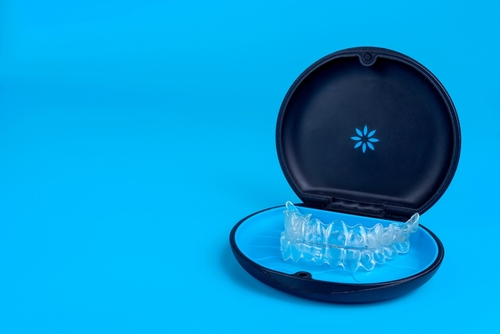Do you have chipped or damaged teeth? Are stains or gaps between your teeth stopping you from sharing genuine smiles?
Porcelain veneers, a popular type of cosmetic dentistry, may be the perfect solution for you.
But what are veneers and what can you expect from the veneering procedure?
Read on as The Oliver Cosmetic Dental Clinic explains all in this article.
What are veneers?
A veneer is a thin moulding made from high-quality dental porcelain or composite resin material that covers the front surfaces of a tooth.
Most people seek veneer treatment to correct stained, chipped, misshapen, or crooked teeth, but it can also be used to conceal gaps in teeth where orthodontic treatment may not be suitable.
Years of drinking caffeinated or acidic drinks, smoking cigarettes, or eating highly pigmented foods can take its toll on your teeth, too. However, dental veneers can be matched to your natural tooth colour, shape, and size, offering a natural finish.
They also serve as a protective layer for weakened or damaged teeth, preventing further chipping or cracking.
Why porcelain veneers?
Porcelain veneers offer a long-lasting cosmetic solution. If taken care of properly, they can last 20 + years.
The porcelain material mimics the translucency and light-reflecting properties of tooth enamel, creating a natural-looking smile.
Coffee, tea, red wine, curries, and beetroot are the biggest culprits of tooth stains. While composite veneers are prone to staining, non-porous porcelain veneers will maintain their vibrancy over time.
Although it’s one of the key reasons behind their popularity, porcelain veneers are not just about transforming smiles and establishing a newfound confidence.
How are porcelain veneers fitted?
Now you know a little more about what they are and why they’re the go-to for many patients and practices (including The Oliver Cosmetic Dental Clinic!), let’s look more closely at how porcelain veneers are fitted.
Veneers can usually be fitted in two appointments, following a four-step process that starts with a consultation and ends with a gorgeous new smile.
1. Planning
Our cosmetic dentists will examine your teeth, take dental X-rays, impressions and bite measurements of a scan of your teeth to start planning your treatment. This is to ensure porcelain veneers are the best treatment option for you and that you don’t have any underlying oral health issues.
We’ll gladly guide you through the options for your smile makeover treatment and help you choose the shape, size, and shade, guaranteeing a natural-looking result.
2. Preparation
We use a minimal preparation technique when preparation your teeth for porcelain veneers. In cases where we are replacing veneers that have been completed elsewhere, we take good care to ensure that we safely and carefully removing the existing restoration and repealing this with your dream smile.
This is to ensure the there is no change to the thickness of the veneers, so your teeth remain the same thickness as before – helping enhance the natural finish.
3. Fabrication and Smile Transformation
We will take digital scans and impressions of your teeth and send them to the dental laboratory, where our expert dental technicians will create your final porcelain veneers.
While you’re waiting for your permanent veneers to be made, temporary veneers will be fitted, allowing you to get used to how they look and feel and protecting your teeth. This will act like your dress rehearsal and will keep you in full control of the final look.
4. Veneers Placement
Once you confirm that you love your new look, the final veneers are created, our cosmetic dentistry specialists will remove the temporary veneers and prepare to fit the final porcelain veneers.
The veneer is then skilfully attached using a special dental adhesive. A high-intensity curing light is then used to help the dental glue harden quickly.
5. Review
Before you leave the clinic, we will assess your bite and make any necessary adjustments to ensure the veneers feel comfortable.
Then, a few weeks after the procedure, you’ll be invited back to our clinic to make sure you’re satisfied with the look and feel of your porcelain veneers. We’ll also examine your gums and answer any questions you may have.
How to care for porcelain veneers
Veneers – whether porcelain or composite – require the same care and attention as the rest of your natural teeth.
While your dentist should be able to provide more details on aftercare, this typically includes:
- Brushing twice a day using a fluoride toothpaste
- Flossing daily
- Attending regular check-ups with your dentist and hygienist
Porcelain is a ceramic, making them stronger and longer lasting than composite
Book your consultation for porcelain veneers
If you’re keen to correct smile imperfections, talk to the team at The Oliver Cosmetic Dental Clinic today.
We can schedule a consultation whenever suits you.
During your online or face-to-face appointment at our award-winning clinic in Mayfair, our expert cosmetic dentist will discuss your smile concerns, expectations, and oral health in detail.
If we confirm you’re a suitable candidate for porcelain veneer treatment, we’ll then provide a smile simulation, so you can envisage how your dream smile will look after having porcelain veneers fitted.
We’ll also provide a bespoke treatment plan which will include the number of appointments required and a clear breakdown of the costs. We provide payment plans to make our veneer treatment more accessible to everyone and can discuss the options available during your initial consultation.
So, why not take the next step towards achieving a dazzling new smile and book your consultation online?
We make the process as straightforward as possible. All you need to do is pick which type of appointment you need and which clinician you’d like to see (if known). Let us know when works best for you, and fill out your contact details.
We look forward to welcoming you at our clinic on Old Bond Street soon, ready to transform your smile for the better.







